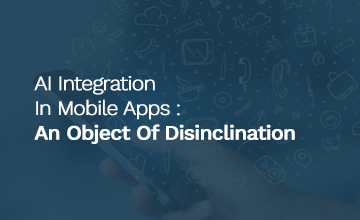By “natural language” we refer to a language used for daily communication by human beings; languages like English, Hindi or Portuguese. Natural Language contrasts to artificial languages such as programming languages and mathematical notations and it has evolved from generation to generation. It is not an easy task to pin down with explicit rules. The way we, humans, communicate with each other is Natural Language. Think about how much text you see each day: Signs, Menus, Email, SMS, Web Pages and the list is endless. Automated manipulation of natural language, like speech and text, by software is Natural Language Processing, or NLP. It helps machines learn to communicate with each other and with humans in a meaningful way. Several decades of research resulted in development of NLP, however, the current word2vec technology has brought in pathbreaking results. In medicine, SNOMED-CT aids the development of NLP by use of indices and their relationships. For example, with the term “hepatomegaly” in input data, machine can still recognize even if user inputs as “liver enlargement”. Classification of digital documents in a uniform fashion is made easy and possible by this method.
NLP – Advantages
Natural Language Processing or NLP as simple as counting word occurrences to compare different writing styles. NLP can also be as complex as “understanding” of complete human utterances to give useful responses to them. The precise requirements as well as the highly unambiguous structured voice commands make it tough to develop NLP applications.
Even though the development stage is little complex, using NLP in the applications has lots of advantages:
- Automatic summarization: It produces a readable summary of a part of the text.
- Co reference resolution: It determines which words refer to the same objects, out of the given sentence or larger portion of text.
- Discourse analysis: This includes several related tasks such as identifying the discourse structure of connected text.
- Better results all the way around: It is beyond keyword matching or text-oriented search; meaning-to-meaning search provides results that are correct according to the form of the input text, whereas NLP delivers applicable results as soon as your customer hits “search.” Understanding the intension of the customer.
- Search processing translates the intention of your customer: Your customers are human beings, which means they’re not 100 percent accurate in communication. They make spell errors; they may confuse brands with products and forget product or service details — It depends on how robust your on-site search is to fill the gap when these errors happen. NLP connects the dots to keep search unified, even in the scenarios like typos or abrupt information.
- More data extracted means more data for growth: Measuring what your customers intend to search is key in improving your business. Through NLP, you can learn about customer habits, preferences, and tendencies across your entire consumer base. This data can be re-applied across several phases of your business, from marketing to SEO, doing campaigns to sales and promotions and a lot more.
- Complex search options affects results: The ability to handle numerous variables in a single search means providing a collective result that’s suggestive of your customer’s end needs. Natural language processing looks at a broader picture, not just the user input keywords in a search, providing results that are the summation of their parts. Results that might be wrongly recognized by text-based searches or accidentally misplaced or missed out from keyword queries.
- Contextual understanding delivers answers: Today’s search engines are confining to Q&A boxes — customers ask questions and expect answers. In addition to the complicated search options afforded by NLP, your customers can raise questions freely and get to products they’re looking for. Question based searches calls out a huge challenge in your skill-set to serve customers who might not be using the technical keywords or main phrases in their search for a specific product.
The above variables embedded in your search website contribute to fast hit of your e-commerce websites looking for to better serve their customers — and they can all be credited to natural language processing, which is as simple as human language!
Technologies Based On NLP
Technologies constructed on NLP are becoming increasingly widespread. For example, our phones that has the feature of predictive text and handwriting recognition; web search engines retrieves information locked up in unstructured text; machine translation reads and understands texts written in Chinese and re-read them in Spanish; text analysis assists us to detect sentiment in tweets and blogs.
By promising a bridge between human and machine, accessing stored information, natural language processing plays a vital role in the multilingual society.
Importance and Impacts of NLP in Our Life
Natural language processing has many central implications on the ways that computers and humans network on our daily life: To name few, here are the few fields that we come across daily.
1- Mental Illness Analysis — Measure how countless linguistic features of conversations are connected with conversation outcomes. By applying models that are associated with better conversation outcomes as sequence-based conversation models, language model comparisons, message clustering, and psycholinguistics-inspired word frequency analyses, to discover actionable conversation strategies.
2- Mining electronic health records for mammography research — associating mammographic and pathologic results in clinical decision support using natural language processing and data mining methods.
3- NLP Algorithm and Asthma Ascertainment — Application of a Natural Language Processing Algorithm to Asthma Ascertainment through an Automated Chart Review
4 – Natural Language Processing for On-Site Search: If you have or use an e-commerce site, you must be very familiar with natural language processing (NLP) being used in Site Search. More than just another path, NLP has been identified as a powerhouse in the realm of on-site search and has brought in vast number of advantages packaged up only for those who focus on improving their business by improvising their site search capabilities.
If your e-commerce site isn’t using NLP to power customers’ on-site searches, you contact our developers at Fusion Informatics.
You can reach out to us at [email protected] or you can call us +91 63610 54076. We’re sure we can take to the next level.







